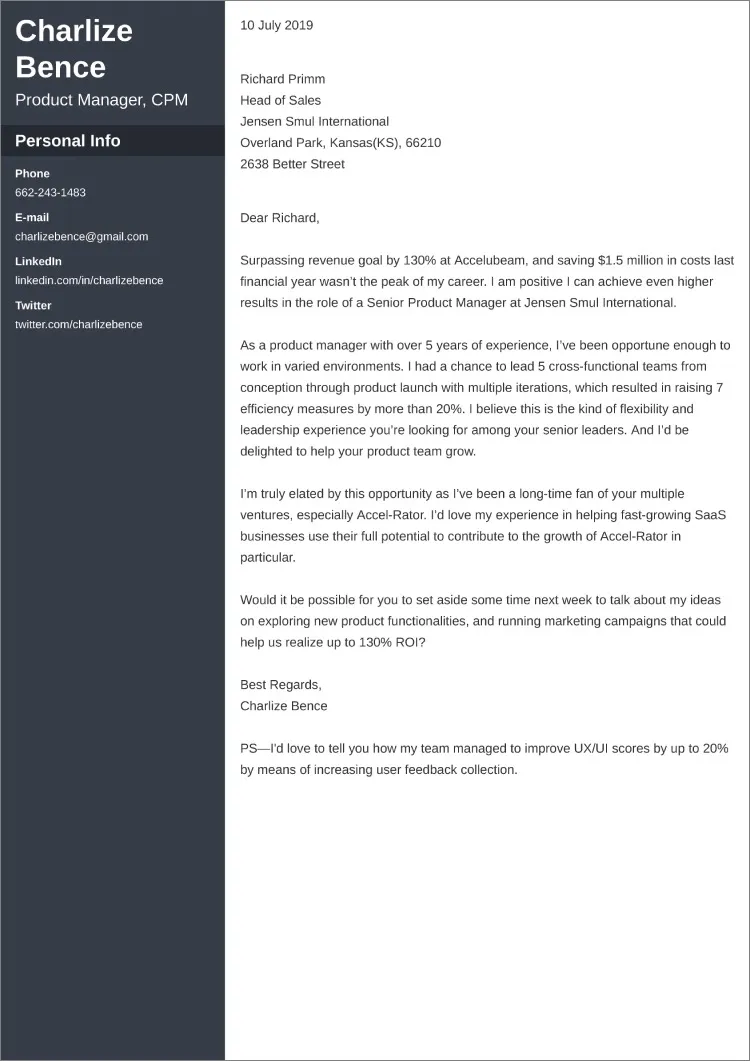Why Personalization Matters in Cover Letters
In a world saturated with generic job applications, a personal cover letter can be your golden ticket to standing out. A well-crafted, personalized cover letter demonstrates to the hiring manager that you’ve taken the time to understand their company and the specific role you’re applying for. It’s more than just a formality; it’s a crucial opportunity to showcase your unique personality, relevant experiences, and genuine interest in the position. A generic cover letter often gets tossed aside, while a personalized one captures attention and increases your chances of landing an interview. This is where your chance to shine is.
Grabbing Attention with a Personalized Cover Letter
The initial lines of your cover letter are crucial. Instead of a generic greeting, address the hiring manager by name (if possible) and immediately state why you’re excited about the role and the company. This shows initiative and genuine interest. Instead of rehashing your resume, use the introduction to provide a brief anecdote or a compelling statement that immediately piques the reader’s interest. For example, if the company recently launched a new product, mention how you admire that product and how your skills can help contribute to the success of that. This proactive approach will set the tone for the rest of your letter.
Showcasing Your Unique Personality
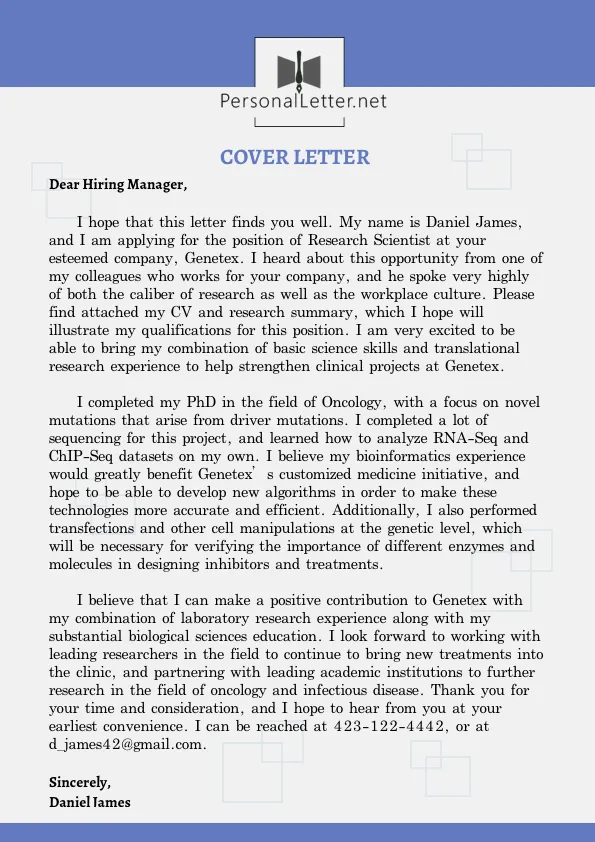
A personalized cover letter allows you to infuse your personality into your application. Your resume provides the facts, but your cover letter gives you the space to demonstrate your communication style, enthusiasm, and work ethic. Share a brief story that highlights your problem-solving skills, your collaborative abilities, or your passion for the industry. This will give the hiring manager a better understanding of who you are beyond your qualifications. Let your personality shine through, but always maintain a professional tone. Think of this as your first interaction with a potential employer, and make it a positive one.
Highlighting Relevant Experiences
Don’t just list your past experiences; connect them directly to the job requirements. Use specific examples of your accomplishments and quantify your results whenever possible. Instead of saying you “managed projects”, explain how you “successfully managed a project that increased sales by 15%.” This level of detail demonstrates your capabilities and shows the employer how you can add value to their team. Tailor your examples to the specific needs of the role and highlight the skills and experiences that make you the best fit for the job.
Key Elements of a Personalized Cover Letter
Researching the Company and the Role
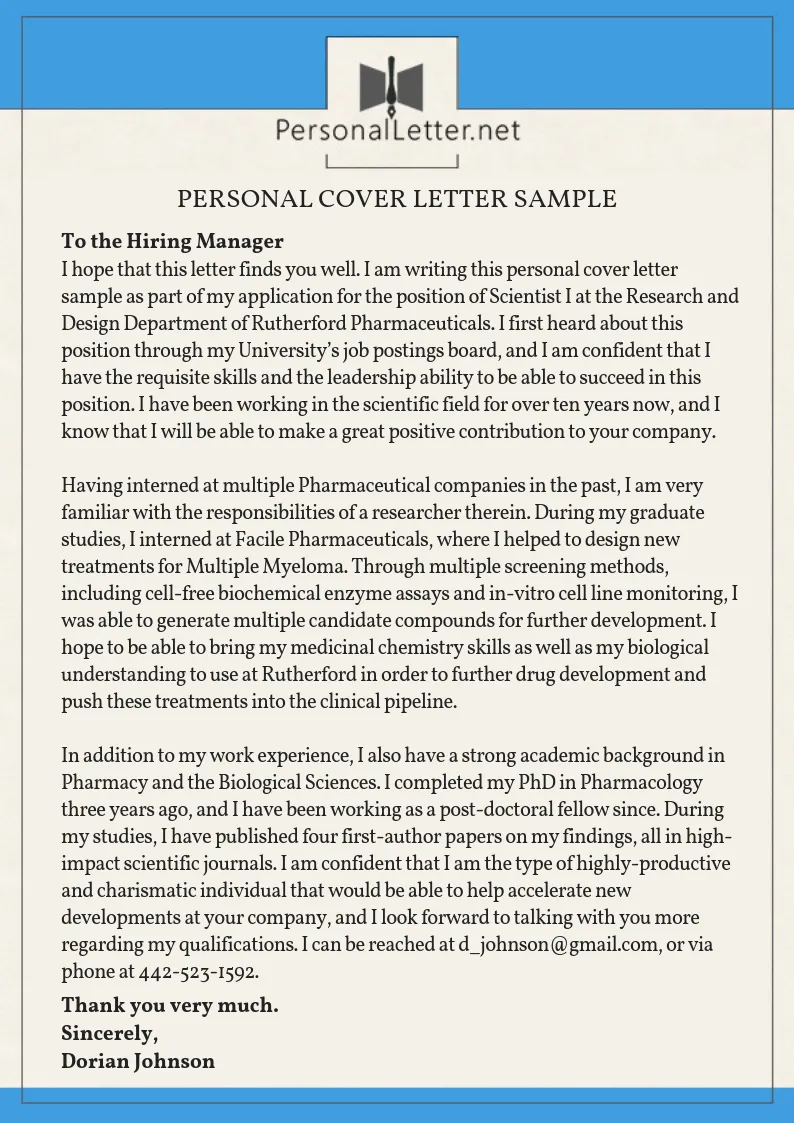
Before you start writing, thoroughly research the company and the specific role you’re applying for. Visit the company’s website, read their press releases, and explore their social media profiles to understand their values, culture, and current projects. Analyze the job description carefully and identify the key skills, experiences, and qualifications the employer is seeking. Understanding these details will help you tailor your cover letter to address their specific needs and demonstrate your knowledge of the company and position. Use this research to inform your tone and the examples you provide.
Tailoring Your Letter to the Job Description
Customize your cover letter for each job application. Don’t simply reuse the same letter for every opportunity. Carefully review the job description and identify the keywords and requirements that are most important to the employer. Then, highlight the skills and experiences that align with those requirements. Provide concrete examples that demonstrate how you’ve used those skills in the past and what results you achieved. Show how you can meet their needs and the value you can bring to the organization. This demonstrates that you’ve put in the effort and understand what the company is looking for.
Using the Right Tone and Language
The tone of your cover letter should be professional yet personable. Avoid overly formal language or jargon that might alienate the reader. Use clear, concise, and active language to convey your message effectively. Be enthusiastic and show genuine interest in the role and the company. Tailor the tone to match the company culture. If the company has a more relaxed, informal atmosphere, you can use a slightly more conversational tone. However, always maintain a level of professionalism and avoid slang or overly casual language.
Structuring Your Personalized Cover Letter

The Introduction that Captivates
Your introduction should immediately grab the reader’s attention. Start by addressing the hiring manager by name, if possible. State the position you are applying for and how you found the opportunity. Then, provide a brief, compelling statement that highlights your interest in the company and the role. You can include an anecdote, a personal connection, or a brief summary of your key qualifications. Make it clear why you’re a good fit for the job and what you hope to achieve. This opening should create a positive first impression and entice the reader to continue reading.
Body Paragraphs – Connecting Skills and Needs
The body paragraphs are your opportunity to showcase your skills and experiences in detail. Use these paragraphs to highlight specific examples of your accomplishments and how they relate to the job requirements. Describe your skills and abilities in a way that clearly shows how you can meet the employer’s needs. Provide evidence that supports your claims by using quantifiable results, specific achievements, and relevant experiences. Tailor each paragraph to the needs of the role and focus on the areas that are most important to the employer. Connect your skills and experiences directly to the job description.
The Powerful Closing
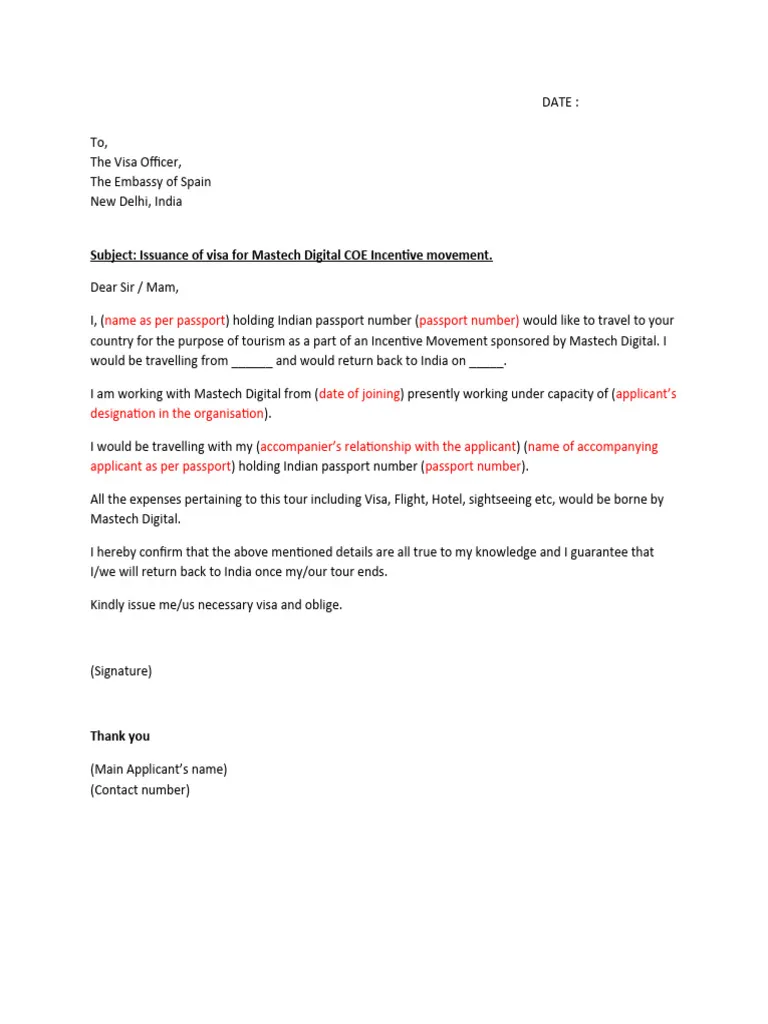
Your closing paragraph should reinforce your interest in the position and the company. Reiterate your key qualifications and your enthusiasm for the opportunity. Include a clear call to action, such as expressing your eagerness to discuss your qualifications further and scheduling an interview. Thank the hiring manager for their time and consideration. End with a professional closing, such as “Sincerely” or “Best regards,” followed by your name. The conclusion should leave a positive, lasting impression and encourage the hiring manager to take the next step.
Top 5 Tips for Writing a Successful Personal Cover Letter
Show, Don’t Tell – Providing Specific Examples
Instead of simply stating your skills, demonstrate them through specific examples. For instance, instead of saying “I am a good leader,” describe a situation where you led a team to success, mentioning the challenges you faced, the actions you took, and the results you achieved. This approach adds credibility to your claims and gives the reader a clear understanding of your capabilities. Quantify your achievements whenever possible, such as “Increased sales by 20%.” The more specific you are, the more compelling your cover letter becomes. This will make your application truly stand out.
Focusing on the Employer’s Needs
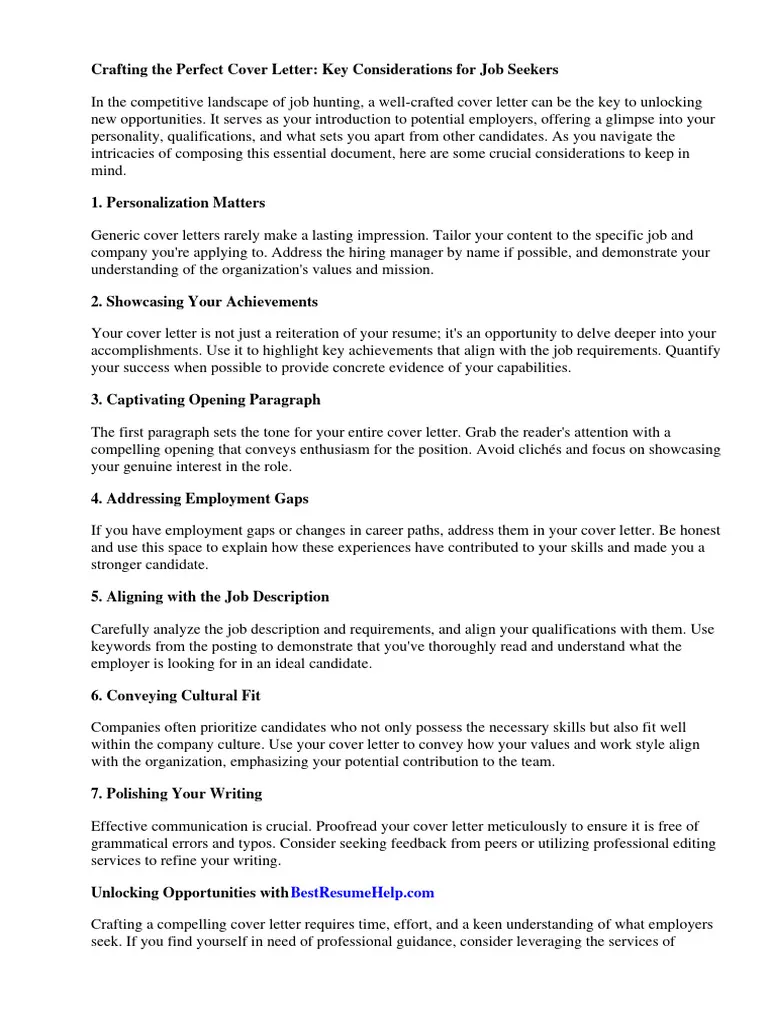
While it’s important to highlight your accomplishments, the primary focus should be on how you can meet the employer’s needs. Analyze the job description to understand what the company is looking for, and tailor your cover letter to address those needs. Explain how your skills and experiences align with the requirements and how you can contribute to the company’s success. Show the employer that you understand their challenges and are prepared to provide solutions. This applicant-centered approach will demonstrate your value and increase your chances of getting hired.
Demonstrating Enthusiasm and Passion
Your cover letter is the perfect place to express your enthusiasm and passion for the role and the company. Show the hiring manager that you are genuinely excited about the opportunity and that you are eager to contribute. Share what specifically interests you about the company’s mission, values, or products. Let your passion shine through your writing. Enthusiasm is contagious, and it can make a significant difference in how the hiring manager perceives you. This will give the employer a sense of your genuine interest in their work.
Proofreading and Editing for Perfection
Before submitting your cover letter, carefully proofread and edit it for any errors in grammar, spelling, and punctuation. Typos and grammatical errors can create a negative impression and undermine your credibility. Read the letter multiple times, and consider having a friend or colleague review it as well. Ensure that the tone and language are appropriate and that your message is clear and concise. A polished, error-free cover letter demonstrates your attention to detail and your commitment to presenting yourself professionally.
Following Up After Submission
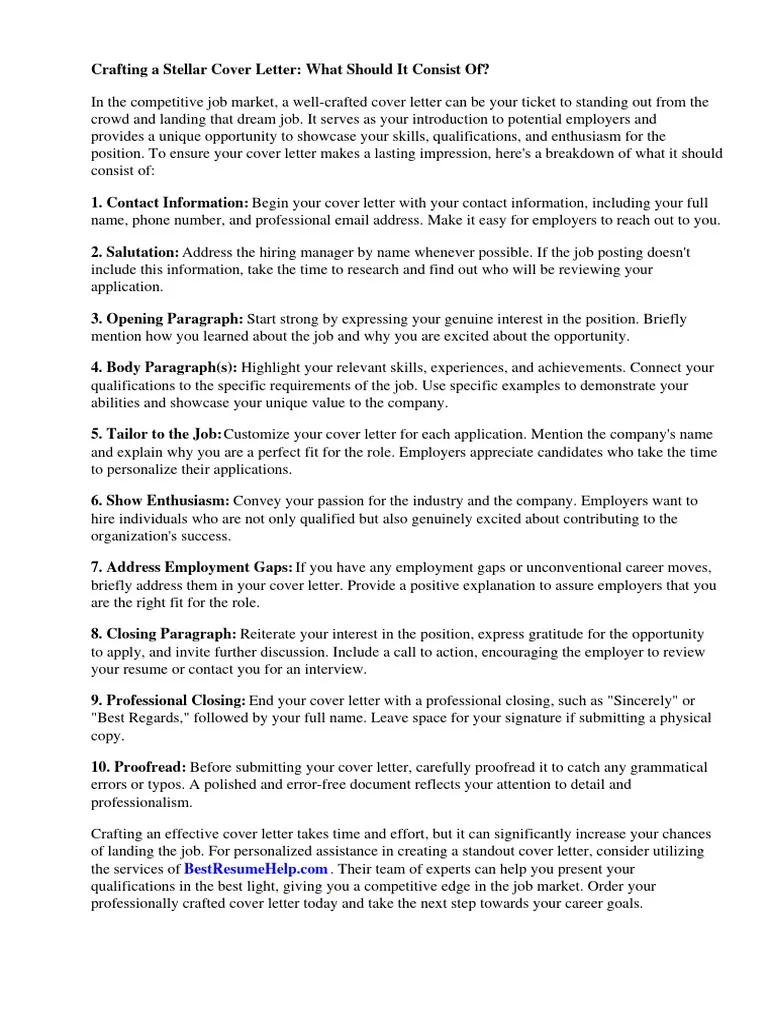
After submitting your cover letter and resume, it’s a good idea to follow up with the hiring manager. Send a brief email a week or two after applying to reiterate your interest in the position and to inquire about the status of your application. This shows that you are proactive and genuinely interested in the opportunity. Mention something specific from your cover letter or the job description to remind the hiring manager of your qualifications. However, avoid being overly persistent, and be respectful of their time.
Common Pitfalls to Avoid in Personalized Cover Letters
Generic Language and Clichés
Avoid using generic language and clichés that can make your cover letter sound impersonal and unoriginal. Steer clear of phrases like “I am a team player,” “I am a hard worker,” or “I am excited about this opportunity.” These statements are vague and don’t provide any specific information about your skills or experiences. Instead, use specific examples and concrete details to demonstrate your qualifications. Replace generic language with authentic, personalized statements that reflect your unique skills and personality. The key is to show, not tell, the reader about your abilities.
Focusing Solely on Yourself
While it’s essential to highlight your skills and experiences, avoid making the cover letter all about you. The hiring manager is primarily interested in how you can contribute to the company. Instead of focusing solely on what you want, focus on how you can meet their needs. Discuss your skills and experiences in the context of the job requirements and what you can bring to the organization. This approach will show that you understand the company’s goals and that you are prepared to provide solutions to their problems. Make sure to show how your skills benefit the employer.
Typos and Grammatical Errors
Typos and grammatical errors are a major turnoff for hiring managers. They demonstrate a lack of attention to detail and can undermine your credibility. Before submitting your cover letter, carefully proofread it for any errors in grammar, spelling, and punctuation. Read the letter multiple times, and consider having a friend or colleague review it as well. Use grammar checking tools to catch any mistakes. Ensure that your writing is clear, concise, and free of errors. A polished, error-free cover letter shows that you care about the details.
Failing to Proofread Thoroughly
One of the most common pitfalls is failing to proofread your cover letter thoroughly. Even if you’ve written an excellent letter, errors can detract from your message. Read your cover letter multiple times, and have someone else proofread it as well. Pay close attention to grammar, spelling, punctuation, and sentence structure. Also, make sure that the information is accurate and that you’ve tailored the letter to the specific job. Taking the time to proofread can make a huge difference in making a great first impression.
Conclusion
A personal cover letter is an invaluable tool in your job search arsenal. By personalizing your cover letter, showcasing your unique personality, highlighting relevant experiences, and demonstrating a genuine interest in the role and the company, you can significantly increase your chances of landing an interview. Remember to tailor your cover letter to each specific job, use clear and concise language, and always proofread for errors. A well-crafted, personalized cover letter will set you apart from the competition and help you make a positive impression on potential employers. Good luck with your job search!
